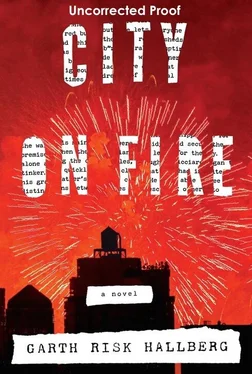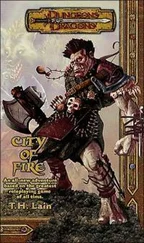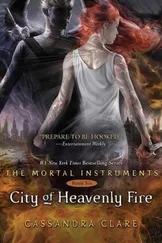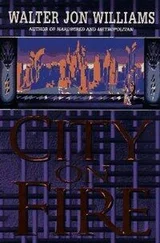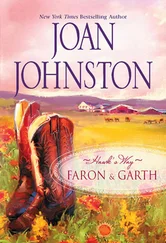The truth was, Grandpa was feeling sorry for him. Since the miraculous birth of Charlie’s twin brothers, no one was supposed to acknowledge the fact that the older son was being shunted aside, but Grandpa meant to atone — a frankness Charlie appreciated. He’d asked to go to Montreal for Hanukkah this year, but Mom and Grandpa still blamed each other for Dad’s dying. So it was like two deaths, almost. All Charlie was left with was the hat.
He was surprised to find now that Grandpa’s huge head had been no bigger than his own. He posed in his closet-door mirror, three-quarters, right profile. It was hard to tell how he’d look to Sam, because other than the hat, he was wearing only briefs and a tee-shirt, and also because shifting fogs of allure and disgust seemed to interpose themselves between Charlie and the glass. His long white limbs and the goyish down on his cheeks sparked a hormonal flicker, but then these days so could the rumble of a schoolbus seat, the scent of baby oil, certain provocatively shaped items of produce. And his asthma was a problem. His Clamato-red hair was a problem. He tugged the hat down, filled his birdy chest with air. He shifted his stance to conceal the zit sprouting from his right thigh. (Was it even possible to get a zit on your thigh?) He checked himself against the photo on the LP sleeve: three artless men, skinny like himself, and one scary-looking transvestite. He wasn’t sure he could picture the hat on any of them, but no matter; he found it beautiful.
Besides, he had picked it specifically for its violation of the canons of taste. In the broad and average middle of broad and average Long Island, 1976 had been the year of après-ski. The idea was to look like you’d tackled a slalom course on the way to school: acrylic sweaters and knit caps and quilted down jackets with lift-passes clipped to the zippers. These passes, gone a poignant off-season yellow, were the only way Charlie knew the names of the resorts; his tribe, as a rule, did not ski. And Grandpa’s hat … well, he might as well have gone around in a powdered wig. But that was the point of punk, Sam had taught him. To rebel. To overturn. Memories of their illicit summer, those dozen-plus trips to the City before Mom had ruined the whole thing, stirred deliciously inside him, as they had last week when he’d picked up the phone to find Sam on the other end. But how quickly pleasure sank back into the customary slurry of feelings: the mix of nerviness and regret, like something he both was and wasn’t ready to let go of was about to be taken from him.
He flipped to side two, in case there was a riff he’d somehow missed or some nuance of phrasing he’d failed to memorize. Brass Tactics, the record was called. It was Sam’s favorite; she’d been gaga over the singer, the small guy in the leather jacket and Mohawk flashing the middle finger from the sleeve. Now it was Charlie’s favorite, too. This fall he’d listened to it over and over again, assenting to it as he’d assented to nothing since Ziggy Stardust. Yes, he too was lonely. Yes, he too had known pain. Yes , he had lain on his side on the attic floor the afternoon of Dad’s funeral and listened to the hot wind in the trees outside and Yes, he had heard the leaves turning brown and had wondered, really, if there was any point to anything at all. Yes, he had sat that year with one leg out the attic window and watched his skull burst like a waterballoon on the cracked concrete of the drive, but, Yes, he’d held himself back for a reason, and maybe this was the reason. He’d discovered Ex Post Facto too late to see them play live, but now the band had reconstituted itself for a New Year’s show, with some guy Sam knew replacing Billy Three-Sticks on vocals, she’d said, and some kind of pyrotechnics planned for the finale. This “some guy” rankled, but hadn’t she just admitted to needing him —meaning Charlie ?
Snow was collecting on the windowsill as he made a last pass through his dresser. Shivering was unmanly, and he was determined not to be cold. On the other hand, his long johns made him look sexless, and when Sam unzipped his pants tonight — when they found themselves alone in the moonlit room of his imaginings (the same eventuality for which he’d pocketed an aging Trojan, sized magnum) — he didn’t want to blow it. He decided, as a compromise, to wear pajama bottoms under his jeans. They’d make the jeans look tighter, like he was the fifth Ramone. He took a long pull on his inhaler, turned off the stereo, and shouldered the bag.
Upstairs, his mother was scrubbing dishes. The twins sat on the curling linoleum near her feet, shuttling a toy back and forth. A Matchbox car, Charlie saw, with an action figure rubber-banded like luggage to the roof. “He sick,” Izzy volunteered. Abe made a “Woo, woo” ambulance sound. Charlie scowled. Mom had now been alerted to his presence, and he couldn’t imagine deceit wouldn’t be written all over him when she turned around. Then he noticed the coil of wire stretching from her head to the wall-mounted phone. “Is that you, honey?” she said. And, into the phone: “He’s just come in.” He would have asked who she was talking to, except he already knew.
“Yeah, I’m off,” he said carefully.
She had pinned the receiver between shoulder and chin. Her arms kept up their ablutions over the sink’s steaming water. “Did you need a ride?”
“It’s just Mickey’s house. It’s walkable.”
“This snow’s supposed to get worse before it gets better.”
“Mom, I’m fine.”
“Guess we’ll see you next year, then.”
The joked baffled him for a moment, as it did annually, like the first girl to pinch him on St. Patrick’s Day. Even after he got it, a bitter liquid seemed to have flooded his throat. What he really wanted was precisely for her to turn and look and try to stop him. But why? He was just sneaking off for the night, and would be back by dawn, and nothing was going to change, because nothing ever changed.
Outside, free from the complex binding charms of the house, his movements came easier. He retrieved his bike from the side of the garage and hid the overnight bag behind the HVAC unit. It held a decoy wad of dirty laundry harvested from his bedroom floor. The snow was coming thicker now and had begun to stick to the pavement, a textureless sheet of waxed paper. His tires slicked great black arcs behind him. When he passed under a streetlamp, a monster swelled on the earth ahead: spindly at the bottom, huge of shoulder and mane (his lumpy jacket, his furry hat). He rode on, narrowing his eyes against the daggers of snow.
Downtown Flower Hill, despite the Village Council’s best efforts, couldn’t quite outrun what it was. By day, it counterfeited a down-at-heel urbanity — there was a florist, a bridal parlor, a not-very-good record shop — but at night, the lit-up storefronts blazed the coordinates of the town’s real urgencies. Massage. Tattoos. Gun and Pawn. Outside an empty deli, an animatronic Santa pivoted stiffly in time with “Jingle Bells,” its legs chained to a fence. Charlie, unable to feel his hands anymore, stopped and went in to bolt some coffee. It was just hitting him ten minutes later, when he stowed his bike under some bushes at the station. He would really have to remember to get a lock.
He found Sam waiting in a cone of light at the far end of the platform. It had been half a year since he’d seen her, but he could tell from the way she gnawed the thumbnail of her cigarette hand that something was eating her. (Or anyway, he should’ve been able to tell, via their telepathic connection. How many nights since his grounding had he stayed awake talking with her in his head? But when you got right down to it, telepathy, gnosis, and all the other superpowers he’d at various times imagined himself to have did not exist. No one in real life could see through walls. No one (he would think later, after what happened happened) would be able to reverse time’s arrow.) Amazingly, she didn’t see him slip on the snow as he hurried over. Even when he was practically on top of her, she continued to stare up at the lunar face of the station clock and the white flakes vanishing there. He wanted to put an arm around her, but the angle of their bodies being off, he settled for punching her shoulder — which came out weak, not at all the sign of affection it would have been from hands more practiced than his own, so he turned it into a little dance, punching the air, pretending to have only accidentally hit her. ’ Ey! ’O! Let’s go! And finally, she turned to him the face that had been withheld for so long: the burning dark eyes, the upturned nose with its hoop of silver, and the mouth made for the movies, slightly too wide, from which her smoke-coarsened voice — her best thing — now came. “Long time no see.”
Читать дальше
